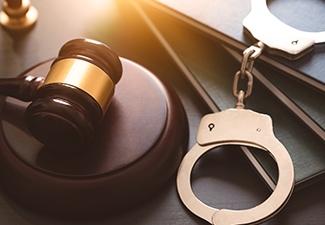Mental Health & Criminal Defense
Sept. 30, 2022
 In the years since 2020, mental health has been under the microscope more than ever before. What happens when mental health and the judicial system collide? What most prosecutors don’t want to admit is that mental health is often a major contributor or underlying condition that can be a catalyst for criminal behavior. Fortunately, there is a unique subset of experienced criminal defense attorneys who know both the criminal side of the law as well as the impact of mental health on crime. That’s where we come in at The Law Offices of Hoskins and Penton, P.A.
In the years since 2020, mental health has been under the microscope more than ever before. What happens when mental health and the judicial system collide? What most prosecutors don’t want to admit is that mental health is often a major contributor or underlying condition that can be a catalyst for criminal behavior. Fortunately, there is a unique subset of experienced criminal defense attorneys who know both the criminal side of the law as well as the impact of mental health on crime. That’s where we come in at The Law Offices of Hoskins and Penton, P.A.
Common Mental Health Disorders
Mental health covers a broad spectrum of conditions. Despite the wide range of mental health issues and the unique variables to every scenario, there are common disorders that merit consideration and careful analysis. These are:
Anxiety
Depression
OCD (obsessive-compulsive disorder)
Panic Attacks
Bipolar Disorder and other mood disorders
PTSD (post-traumatic stress disorder)
Schizophrenia and other psychotic disorders
Mental Health as a Defense
Even if you have been professionally diagnosed by a therapist or psychologist, one should never assume that charges will be dropped or lessened just because you have documentation of a disorder. Navigating any criminal defense can be complex; when coupled with physiological factors, things can become even more convoluted. That being said, there are generally three different ways mental health can be used as a defense.
Competency to Stand Trial — This defense may be an option if a person's mental health prohibits them from understanding the charges pending against them and are not mentally competent to withstand a criminal trial.
Capacity to Conform — This defense may be an option when a mental health disorder interferes with the ability to determine right from wrong during the crime.
Mitigation — When Competence to Stand Trial and Capacity to Conform are not available options for defense, Mitigation may be used as a supportive defense. Mitigation entails negotiating with the courts by providing evidence that proves the legitimacy of the disorder as well as a treatment plan that is in place to help the individual deal with mental health issues.
Proving A Mental Health Claim
Evidence is the critical component of every criminal case. Simply telling the courts that you suffer from depression, anxiety, or any other mental illness is rarely an effective strategy for defense. Courts need proof. Often the best path to support a mental health claim is one that provides evidence from licensed mental health professionals or forensic psychologists. Proving a mental health claim can be complex, which is why a mental health and criminal defense attorney can help prove the legitimacy of your claim and pursue the best possible outcome.
Sentencing Rights of Prisoners
with Mental Health Disorders
Even though the courts may consider mental health as part of a criminal case, there is no guarantee that you will avoid punishments that can include jail or prison. However, individuals who have been professionally diagnosed with a mental health disorder do have rights that include therapy or counseling, medication, transfer to a hospital or mental facility, and/or alternative forms of court-approved treatment.
Get Experienced Legal Guidance
Mental health should never be minimized and can be a significant catalyst for criminal activity. At The Law Offices of Hoskins and Penton, P.A., we understand that when facing criminal charges and the struggles of a mental illness, you need both compassionate and experienced legal guidance. When we represent you, we work hard to ensure you have the best possible defense and that the illness is appropriately considered.
Our team is proud to serve clients in Clearwater, Florida, and the neighboring communities of New Port Richey, Tampa, and St. Petersburg.
